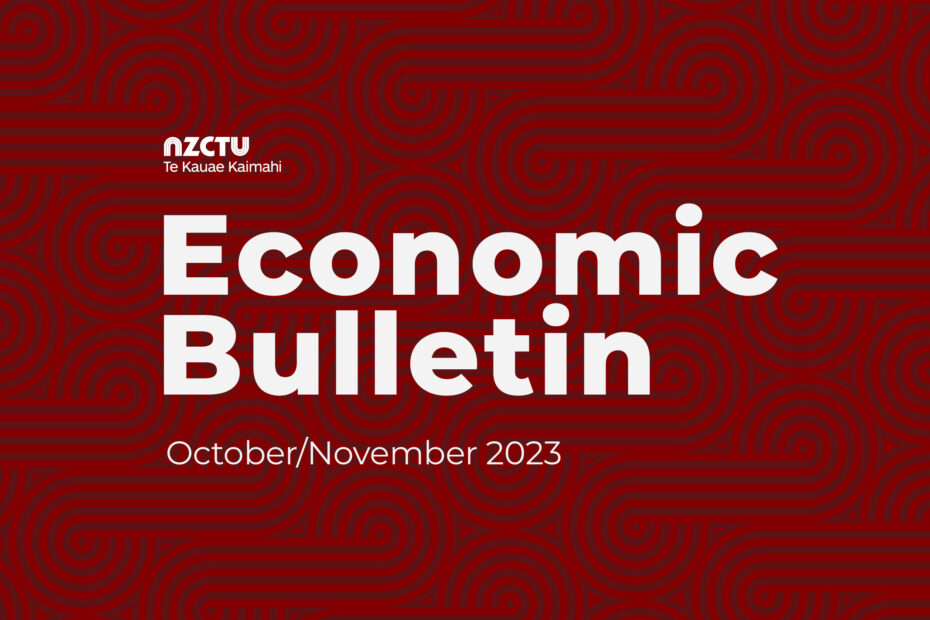Welcome to the October/November edition of the Economic Bulletin. In this edition, we publish the CTU President Richard Wagstaff’s address to the 2023 Biennial Conference. Richard sets the gains won by the New Zealand trade union movement in recent years against the changing political context. Richard also reflects on the enduring power of neoliberal ideas in this country, and the importance of developing and promoting a forceful trade union alternative if we are to build a worker-centric New Zealand.
In our regular updates, we examine the quarterly figures for employment, wages, inflation, and GDP. Overall, this data paints a darkening picture for working people. Although wage growth has remained strong and inflation is coming down, with the jobs market weakening workers’ bargaining power and job security will start to diminish. We also look at the latest data on migration, balance of payments, consumer activity, business confidence, and housing. Finally, we discuss the audited Crown accounts, which were released just prior to the election. They show that government has the capacity to address the challenges we face in housing, health, and child poverty; the only real question is whether it has the will. For the most recent economic forecasts, please see the August/September Bulletin. A new round of forecasts will be discussed in the December edition of the Bulletin.
At the time of writing, the new coalition government was yet to be formed. However, we know that the incoming government’s priorities will likely include the repealing of the Fair Pay Agreements Act, the reinstatement of 90-day trials, and cuts to public services. The CTU has written about these policies here and here. We will be using the Economic Bulletin to explore and expose the consequences of these policies, including their impact on wages, job security, housing, and child poverty.
As always, please get in touch if you have any feedback or suggestions for areas of future investigation.
